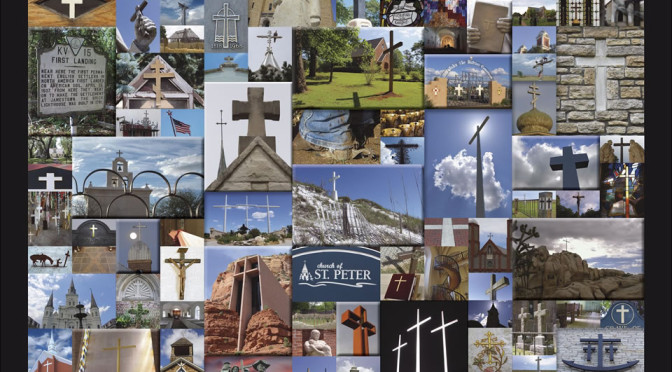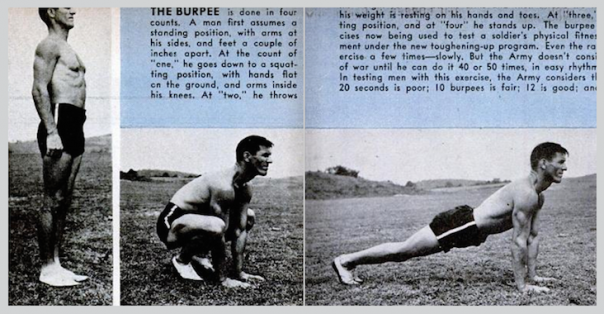Caitlin Trussell with Augustana Lutheran Church on June 13, 2021
[sermon begins after two Bible readings]
Mark 4:26-34 [Jesus] said, “The kingdom of God is as if someone would scatter seed on the ground,27and would sleep and rise night and day, and the seed would sprout and grow, he does not know how. 28The earth produces of itself, first the stalk, then the head, then the full grain in the head. 29But when the grain is ripe, at once he goes in with his sickle, because the harvest has come.”
30He also said, “With what can we compare the kingdom of God, or what parable will we use for it? 31It is like a mustard seed, which, when sown upon the ground, is the smallest of all the seeds on earth; 32yet when it is sown it grows up and becomes the greatest of all shrubs, and puts forth large branches, so that the birds of the air can make nests in its shade.”
33With many such parables he spoke the word to them, as they were able to hear it; 34he did not speak to them except in parables, but he explained everything in private to his disciples.
2 Corinthians 5:6-10, 14-17 So we are always confident; even though we know that while we are at home in the body we are away from the Lord—7for we walk by faith, not by sight. 8Yes, we do have confidence, and we would rather be away from the body and at home with the Lord. 9So whether we are at home or away, we make it our aim to please him. 10For all of us must appear before the judgment seat of Christ, so that each may receive recompense for what has been done in the body, whether good or evil.
14For the love of Christ urges us on, because we are convinced that one has died for all; therefore all have died. 15And he died for all, so that those who live might live no longer for themselves, but for him who died and was raised for them.
16From now on, therefore, we regard no one from a human point of view; even though we once knew Christ from a human point of view, we know him no longer in that way. 17So if anyone is in Christ, there is a new creation: everything old has passed away; see, everything has become new!
[sermon begins]
Here’s a pro-tip conversation starter: Ask someone about their experience on the roads around the Denver area. It’s come up in conversation more in the last couple of weeks than I can remember it before. And that’s saying A LOT. Traffic here has long blended rural and city drivers that mix as well as oil and water and makes for good stories. More recently though, driving has inarguably reached wackadoodle proportions.[1] It’s like we’ve entered a video game that we didn’t download. Local police twitter (yes, I follow them too) tweets with the latest top speeds, flipped cars, and fatal accidents. I have found myself reacting to the chaos before realizing that I’m also contributing to it. Want to do something counter-cultural? Drive as if you have all the time in the world – except not too slowly or you become a problem on the other end of the spectrum which is a significant part of the chaos too. Anybody else feel themselves ramping up just talking about it?
Let’s take a different tack then, shall we? Our bodies are wired in such a way that they can be reminded to respond differently. Intentional breathing can reset our nervous systems and reduce anxiety.[2] Let’s try it together. In just a minute, I’m going to invite you to breathe in for a count of two, hold that breath for a count of three, and breathe out for a count of four. References abound on this kind of breathing with different breath and hold counts but, in the interest of time and everyone’s different experiences with this kind of breathing, we’re going to stick to the count of breathing in for two, hold for three, out for four. You can close your eyes if you’re comfortable doing so. We’re going to go through the cycle three times. Ready, close your eyes. Here we go:
Breathe in one-two…
Hold one-two-three…
Breathe out one-two-three-four. [repeat for three times total]
Okay, you can open your eyes – if I haven’t lulled you into sleep, that is. Risky thing for a preacher to do, I suppose. 😉
This relaxed breathing is brought to us, in part, by the Gospel of Mark. Mark generally moves at an intense pace with lots of “immediately” this and “immediately” that.[3] But today, the pace slows down. Dare I say that it’s even gentle. The Markan community was confronted by the destruction of the temple in Jerusalem and what action they should take to get along in the world.[4] They had two obvious options. Should they take up arms and join a revolution? Or should they go along with Roman authority to get along and live another day? The Gospel of Mark offers a third response to the crisis of the day – to follow Jesus in the self-giving way of the cross, to trust God’s faithfulness, and to recognize God’s promises taking “a dramatic and subversive turn in Jesus.”[5]
Mark’s urgency and crisis response takes a pause in our two parables today, telling us stories about how the Kingdom of God expands by God’s power and not our own. We have the parable of the growing seed that sprouts and grows without us needing to know how – “first the stalk, then the head, then the full grain in the head.” And then the parable of the mustard seed that is the tiniest of seeds, producing the greatest of all shrubs and providing shade for the birds. In these stories, we’re reminded that the Kingdom of God is first an act of God. We strategize ideas and take action on them hoping that we’re on the right track, but God’s kingdom will grow. We don’t know how. This is Mark’s version of taking a deep breath, easing the urgency caused by the crisis to remember the main thing. Breathe in. Hold. Breathe out.
There’s almost no day that goes by without someone wondering with me about what they “should be doing” or how they think they should be “handling it.” Heck, I wonder about these things for myself, too. It doesn’t even matter what “it” is. It could be intense personal grief. Or a changing job situation. Or financial difficulty. Or emerging from pandemic ready for normal and not finding it. Quite often, I find myself saying things like, “give yourself some grace” or “be gentle with yourself.” I know from personal experience that this is easier said than done. But when I hear people say it to me, I find it easier to remember that I’m only human. And when I say it to other people, I’m reminded that they are too. Each breath connecting us to every other fragile, wondrous, vulnerable, and impatient creature.
Which brings us to the new creation promised in the second Corinthains reading. My lord, what promise! “If anyone is in Christ, there is a new creation: everything old has passed away; see, everything has become new!”[6] Immediate deliverance. No waiting. New! This baptismal reality in Christ is like the growing seed in the parable – first the stalk, then the head, then the new grain in the head. We do not know how.
You are simply new. Not a romanticized, perfect new version of yourself, though. You are a new through a cross. Through THE cross. You are no longer living for yourself but for the one who died and was raised for you. The one who loves so deeply with divine love that this love changes everything, even you. Unconditional love that accepts you for who you are is freedom to surrender to that love and become what you have received from Christ.
Being the body of Christ means that we are death and resurrection people, coaching and encouraging each other, celebrating and grieving with each other. New. New means that there is something old, something former, and something to let go. Letting go creates space. Letting go gives us space to breathe. To abandon our illusion of control. To slow down our thinking in an anxious time in the world. To acknowledge our gifts and run with them. To acknowledge our sins against self and others and reconcile across them.
Letting go surrenders us to the one who loves so deeply with divine love that we are changed, made new – “first the stalk, then the head, then the full grain in the head.” We do not know how. For this and for all that God is doing, we can say thanks be to God. And Amen.
___________________________________________________________
[1] “Wackadoodle” is a more recent addition to the Oxford English Dictionary. https://www.bbcamerica.com/anglophenia/2014/03/wackadoodle-makes-oxford-english-dictionary#
[2] Seth J. Gillihan, Ph.D. “How to Reduce Anxiety with Every Breath.” October 22, 2019. https://www.psychologytoday.com/us/blog/think-act-be/201910/how-reduce-anxiety-every-breath
[3] This is a fun article comparing the use of “immediately” across the New Testament, the gospels, and Mark in particular. https://livingroomtheology.com/immediately-used-much-gospel-mark/
[4] Matthew L. Skinner, Professor of New Testament, Luther Seminary, MN. Sermon Brainwave Podcast for June 13, 2021. https://www.workingpreacher.org/podcasts/788-third-sunday-after-pentecost-ord-11b-june-13-2021
[5] Ibid.
[6] 2 Corinthians 5:17

![Surrender, Breath, and Being Made New [OR Be Gentle with Yourself] Mark 4:26-34 and 2 Corinthians 5:6-10, 14-17](http://caitlintrussell.org/wp-content/uploads/2021/06/new-creation-plant-sprout-sun-672x372.jpg)

![Tell An Imperfect Story [OR Small Wonder the Inns Were Full] Luke 2:1-20](http://caitlintrussell.org/wp-content/uploads/2017/12/The-Nativity.Julius-Gari-Melchers.20th-century.sermon-Caitlin-Trussell-672x372.jpg)
![Into the Mystic [OR Christian Mystics On The Love of God] Matthew 17:1-9](http://caitlintrussell.org/wp-content/uploads/2017/02/Transfiguration.Armando-Alemdar.Ara_.2004.GNU-Free-Documentation-License-672x372.jpg)
![Loving Before Knowing [OR The Foolishness of the Cross] Matthew 5:1-12, 1 Corinthians 1:18-31](http://caitlintrussell.org/wp-content/uploads/2017/01/cross-equals-heart-sermon-Caitlin-Trussell-672x372.jpg)

![“You’re Gonna Need A Bigger Barn [OR What If Political Conventions Began With Confession] Luke 12:12-21 [22-31] and Colossians 3:1-11](http://caitlintrussell.org/wp-content/uploads/2016/07/Toy_balloons_red_and_blue-672x372.jpg)
![We Begin at the End [OR “YOU Are The Man”] Galatians 2:15-21; Luke 7:36-8:3; Psalm 32; and 2 Samuel 11:26-12:10, 13-15](http://caitlintrussell.org/wp-content/uploads/2016/06/brock-turner-meme.sermon-Caitlin-Trussell.jpg)

